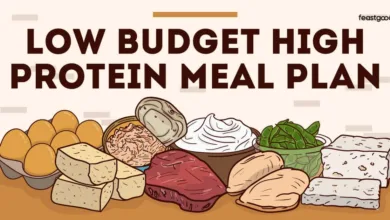Mindful Eating: Can It Help You Manage Stress?

In our fast-paced world, stress eating has become as common as morning coffee. But what if there was a simple, powerful way to flip the script? Enter mindful eating – a game-changing approach that’s revolutionizing how we think about food and stress management.
Let’s face it – we’ve all been there. After a brutal day at work, you find yourself elbow-deep in a bag of chips, wondering how you got there. Or maybe you’re scarfing down lunch while scrolling through emails, barely tasting what you’re eating. Sound familiar? Well, you’re not alone in this chaotic dance with food.
Here’s the kicker: what if I told you that simply changing how you eat could dramatically reduce your stress levels? That’s where mindful eating comes into play – and boy, does it pack a punch when it comes to stress management!
What Exactly Is Mindful Eating?
Picture this: you’re sitting down to a meal, phone tucked away, TV off, and you’re actually present with your food. That’s mindful eating in a nutshell. But wait – there’s so much more to it than just turning off distractions.
Mindful eating is essentially the practice of bringing full awareness to the eating experience. It’s about tuning into your body’s hunger and fullness cues, savoring flavors, and eating without judgment. Think of it as meditation with a fork and knife! This practice stems from Buddhist mindfulness traditions but has been adapted for modern wellness approaches.
According to Harvard Health Publishing, mindful eating involves “paying attention to our food, on purpose, moment by moment, without judgment.” The concept encourages us to slow down and really experience our meals – something that seems almost revolutionary in our grab-and-go culture.
The Stress-Food Connection: Why We Eat Our Feelings
Before diving into how mindful eating tackles stress, let’s get real about why stress makes us reach for comfort food in the first place. When we’re stressed, our bodies pump out cortisol – aka the stress hormone. This little troublemaker doesn’t just make us feel anxious; it literally hijacks our appetite control system.
Cortisol triggers cravings for high-calorie, sugary, and fatty foods. It’s like your brain is saying, “Emergency! We need energy now!” Even when you’re just stressed about a work deadline, not running from a bear. Pretty wild, right? This biological response made sense for our ancestors, but in today’s world of chronic stress, it often leads to emotional eating patterns that can spiral out of control.
Research published in the journal Psychoneuroendocrinology shows that chronic stress can disrupt our normal eating patterns, leading to both overeating and undereating behaviors. The study found that people under high stress tend to make poorer food choices and eat more impulsively – a recipe for increased stress levels and decreased overall well-being.
How Mindful Eating Becomes Your Stress-Busting Superhero
Now, here comes the exciting part! Mindful eating doesn’t just change what you eat – it transforms your entire relationship with food and, consequently, with stress. When you practice mindful eating, you’re essentially rewiring your brain’s response to both food and stressful situations.
First off, mindful eating activates your parasympathetic nervous system – the “rest and digest” mode. This is the opposite of the “fight or flight” response that stress triggers. By eating slowly and mindfully, you’re literally telling your body, “Hey, it’s safe to relax now.” Your heart rate slows down, your breathing deepens, and stress hormones take a backseat.
A groundbreaking study from the Journal of Health Psychology found that participants who practiced mindful eating showed significant reductions in cortisol levels and reported feeling less stressed overall. The researchers noted that the act of mindful eating served as a form of active meditation, providing both immediate stress relief and long-term resilience building.
But wait, there’s more! Mindful eating also helps break the vicious cycle of stress eating. When you’re truly present with your food, you’re more likely to recognize emotional eating triggers before they take over. You start to notice the difference between physical hunger and emotional hunger – and that’s where the magic happens.
The Science Behind Mindful Eating and Stress Relief
Let’s geek out a bit on the research, shall we? The scientific community has been buzzing about mindful eating’s stress-busting benefits, and the results are pretty impressive.
A comprehensive review published in Appetite journal analyzed multiple studies on mindful eating interventions. The researchers found consistent evidence that mindful eating practices lead to:
- Reduced emotional eating by up to 70%
- Lower perceived stress levels
- Improved mood regulation
- Better digestion and gut health
- Enhanced body awareness and self-control
One particularly fascinating study from the University of California, San Francisco, followed a group of chronically stressed women for eight weeks. Half practiced mindful eating techniques, while the other half continued their usual eating habits. The mindful eating group showed significant decreases in cortisol levels and reported feeling more in control of their eating behaviors.
Dr. Jean Kristeller, a pioneer in mindful eating research, explains that “mindful eating helps people develop a healthier relationship with food by increasing awareness of internal cues and reducing automatic, stress-driven eating behaviors.” Her work at Indiana State University has shown remarkable results in helping people break free from emotional eating patterns.
Practical Mindful Eating Techniques for Stress Management
Alright, enough theory – let’s get down to the nitty-gritty! Here are some tried-and-true mindful eating techniques that can help you manage stress like a pro:
The 5-4-3-2-1 Grounding Technique
Before you even take a bite, try this sensory exercise:
- 5 things you can see about your food (colors, textures, shapes)
- 4 things you can touch (temperature, weight, texture of utensils)
- 3 things you can hear (sizzling, crunching, your own breathing)
- 2 things you can smell (aromas, spices, freshness)
- 1 thing you can taste (take a small bite and really focus)
This technique instantly brings you into the present moment and activates your parasympathetic nervous system. It’s like hitting the reset button on stress!
The Three-Bite Rule
Here’s a simple but powerful technique: pay extra attention to your first three bites. Chew slowly, notice flavors developing, and put your fork down between bites. This practice helps you transition from stressed-out multitasking mode to mindful eating mode. You’ll be amazed at how much more satisfying your meals become when you actually taste them!
Research from the International Journal of Behavioral Nutrition and Physical Activity suggests that people who eat slowly and chew thoroughly feel more satisfied with smaller portions and experience less post-meal stress. The act of slowing down sends signals to your brain that you’re safe and can relax.
Creating Your Mindful Eating Environment
Your environment plays a huge role in supporting mindful eating practices. Think of it as setting the stage for stress relief! Creating a calm, distraction-free eating space can significantly enhance the stress-reducing benefits of mindful eating.
Start by designating a specific area for meals – somewhere comfortable but not too relaxed (sorry, couch potatoes!). Turn off the TV, put your phone in another room, and maybe light a candle or play some soft music. The goal is to create a peaceful sanctuary where you can focus on nourishing both your body and mind.
Consider the timing of your meals too. Eating when you’re extremely hungry or in a rush defeats the purpose of mindful eating. Try to plan your meal times when you can dedicate at least 20-30 minutes to eating without interruptions. Remember, this isn’t just about the food – it’s about giving yourself permission to pause and reset during stressful days.
Overcoming Common Mindful Eating Challenges
Let’s be honest – incorporating mindful eating into a busy, stressful lifestyle isn’t always easy. But hey, nobody said managing stress was going to be a walk in the park! The key is starting small and being patient with yourself.
One of the biggest challenges people face is finding time. “I barely have time to eat, let alone eat mindfully!” Sound familiar? Start with just one mindful bite per meal. Seriously, just one! Over time, you can gradually extend this to a few bites, then maybe an entire meal on weekends. Baby steps, my friend.
Another common hurdle is the urge to multitask. Our brains are wired to think that eating while working is productive, but research shows it actually increases stress and reduces both work performance and eating satisfaction. A study in the American Journal of Clinical Nutrition found that people who ate while distracted consumed 25% more calories and felt less satisfied afterward.
If you find your mind wandering during meals (and trust me, it will!), don’t beat yourself up. That’s totally normal! Simply acknowledge the thought and gently bring your attention back to your food. It’s like training a puppy – patience and consistency are key.
The Long-term Benefits: Beyond Stress Relief
While stress management might be your primary goal, mindful eating offers a treasure trove of additional benefits that’ll make you wonder why you didn’t start sooner!
Physical Health Improvements
- Better digestion: When you’re relaxed and chewing thoroughly, your digestive system works more efficiently
- Weight management: Mindful eating naturally leads to better portion control and food choices
- Improved blood sugar control: Eating slowly helps prevent blood sugar spikes
- Enhanced nutrient absorption: Your body can better utilize nutrients when you’re not stressed
Mental and Emotional Wellness
- Increased self-awareness: You’ll become more attuned to your body’s needs and emotions
- Better mood regulation: The mindfulness aspect helps develop emotional resilience
- Improved relationships: Being present during meals can enhance social connections
- Greater life satisfaction: When you slow down and appreciate simple pleasures like food, overall happiness tends to increase
A longitudinal study published in Mindfulness journal followed participants for two years after they completed a mindful eating program. The results showed sustained improvements not just in eating behaviors, but in overall stress management, emotional regulation, and quality of life measures.
Mindful Eating in Different Life Situations
Life throws curveballs, and sometimes practicing mindful eating feels impossible. But here’s the thing – mindful eating can be adapted to almost any situation, even when stress levels are through the roof!
At Work
Even if you only have 15 minutes for lunch, you can still practice mindful eating. Take the first few minutes to sit quietly and breathe deeply. Choose foods that require some chewing – this naturally slows you down. If you’re eating at your desk (not ideal, but sometimes necessary), at least close your computer and put your phone face down.
During Family Meals
Family dinners can be chaotic, but they’re also perfect opportunities for collective mindful eating. Start by having everyone take three deep breaths together before eating. Encourage sharing about the day, but try to keep conversation positive and avoid heavy topics that might increase stress.
When Traveling
Travel stress and mindful eating might seem incompatible, but with a little creativity, it’s totally doable. Pack healthy snacks and take time to eat them mindfully instead of rushing through airport food. When staying in hotels, try to eat at least one meal per day away from screens and distractions.
Integrating Mindful Eating with Other Stress Management Techniques
Mindful eating works even better when combined with other stress management strategies. It’s like creating a comprehensive stress-busting toolkit!
Meditation and mindful eating are natural partners. Try doing a brief 5-minute meditation before meals to center yourself and transition into eating mode. Apps like Headspace and Calm offer specific guided meditations for mindful eating.
Exercise and mindful eating complement each other beautifully. Physical activity helps regulate stress hormones, while mindful eating ensures you’re properly nourishing your body for recovery and energy. The American Psychological Association notes that regular exercise combined with mindful practices significantly reduces stress levels.
Sleep hygiene and mindful eating also go hand in hand. Eating mindfully, especially in the evening, can improve sleep quality by reducing digestive stress and promoting relaxation. Avoid heavy, mindless eating before bed – instead, if you need an evening snack, make it light and eat it mindfully.
Frequently Asked Questions
How long does it take to see stress-reduction benefits from mindful eating?
Great question! While some people notice immediate calming effects during their first mindful meal, research suggests that consistent practice for 2-4 weeks typically yields noticeable stress reduction benefits. The key word here is consistent – even 5-10 minutes of mindful eating daily can make a difference.
Can mindful eating help with anxiety disorders?
While mindful eating isn’t a cure for clinical anxiety disorders, it can be a helpful complementary practice. Studies show that mindfulness-based interventions, including mindful eating, can reduce anxiety symptoms. However, if you’re dealing with severe anxiety, it’s important to work with a healthcare professional who can provide comprehensive treatment.
Is it possible to practice mindful eating with a busy schedule?
Absolutely! You don’t need to spend an hour savoring every meal. Start with just one mindful bite per meal, or dedicate 5 minutes to eating without distractions. Even small doses of mindful eating can help activate your body’s relaxation response and reduce stress.
What if I don’t like the food I’m eating mindfully?
That’s actually valuable information! Mindful eating helps you become more aware of what foods truly nourish and satisfy you. If you notice you don’t enjoy something, that’s your body giving you feedback. Use this awareness to make better food choices in the future.
Can children practice mindful eating for stress management?
Yes! Kids are often naturally more mindful than adults, but they can definitely benefit from structured mindful eating practices. Teaching children to eat mindfully can help them develop healthy relationships with food and better stress management skills early in life.
Final Thoughts: Your Journey to Stress-Free Eating
Whew! We’ve covered a lot of ground, haven’t we? From the science behind stress eating to practical techniques for mindful consumption, you now have a comprehensive toolkit for using mindful eating as a powerful stress management strategy.
Remember, mindful eating isn’t about perfection – it’s about progress. Some days you’ll nail it, other days you’ll scarf down lunch while running to a meeting. And that’s totally okay! The goal is to gradually incorporate more awareness and presence into your eating habits, creating moments of calm in your busy day.
The beauty of mindful eating lies in its simplicity and accessibility. You don’t need special equipment, expensive programs, or hours of free time. You just need food (which you’re already eating anyway!) and a willingness to be present. Every mindful bite is a small victory against stress, a moment of self-care, and a step toward better overall well-being.
So here’s my challenge for you: tomorrow, choose one meal or snack to eat mindfully. Put away distractions, take a few deep breaths, and really taste your food. Notice how it feels in your body, how it affects your stress levels, and how much more satisfying the experience becomes.
Your future, less-stressed self will thank you for taking this first step. After all, in a world that’s constantly demanding our attention, choosing to be present with our food is a radical act of self-care. And honestly? It might just be the stress-busting superpower you never knew you needed.







